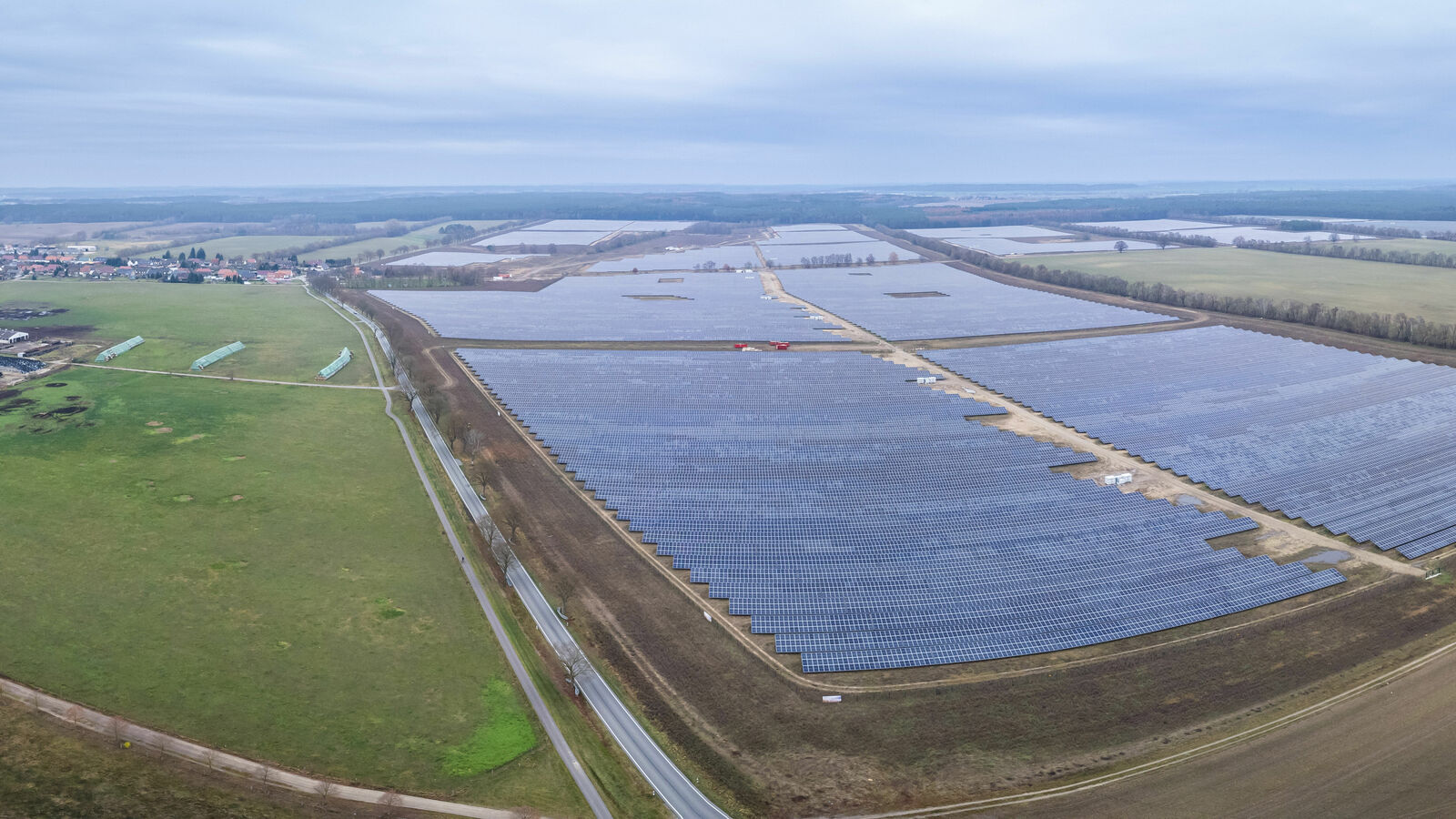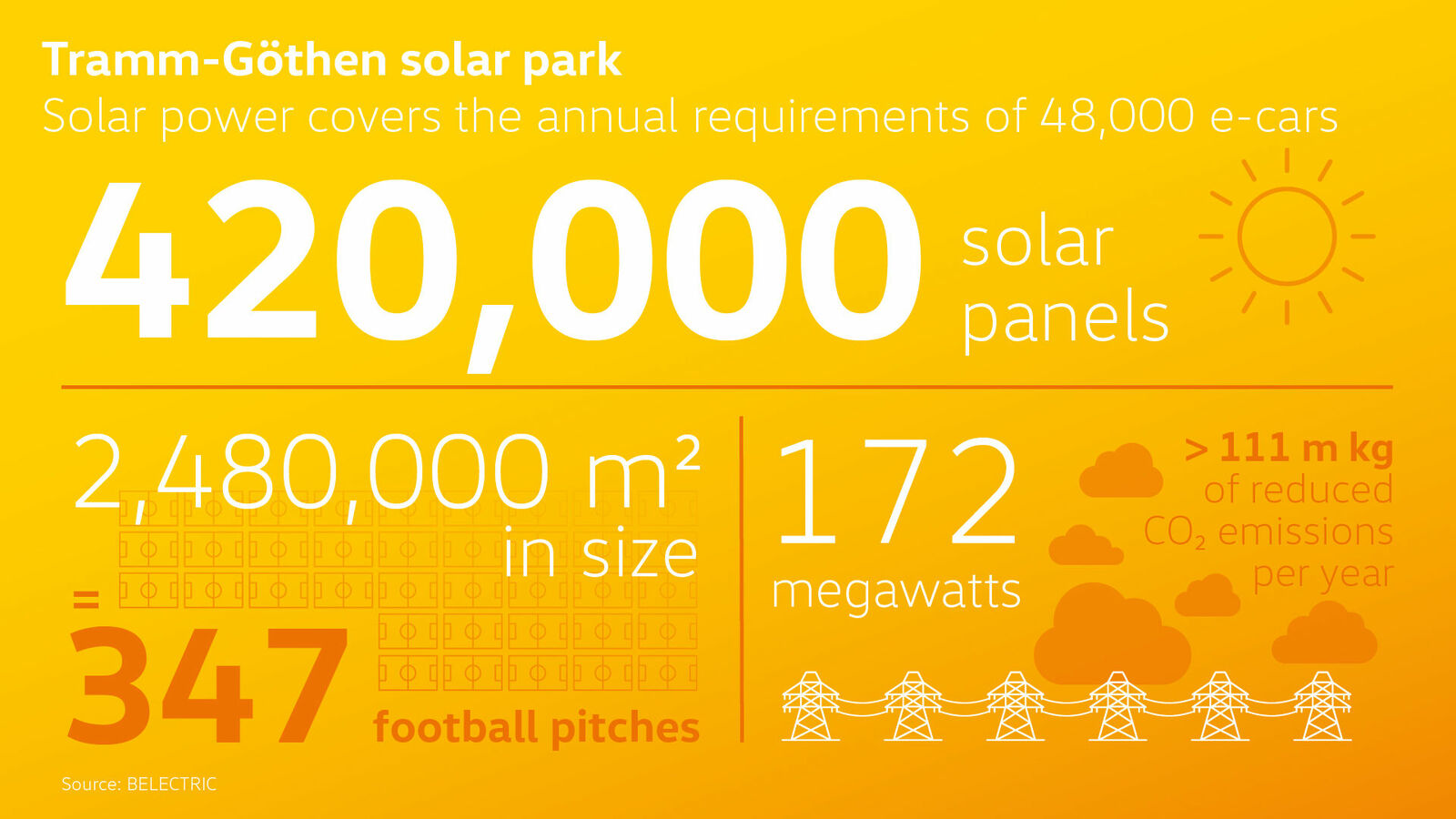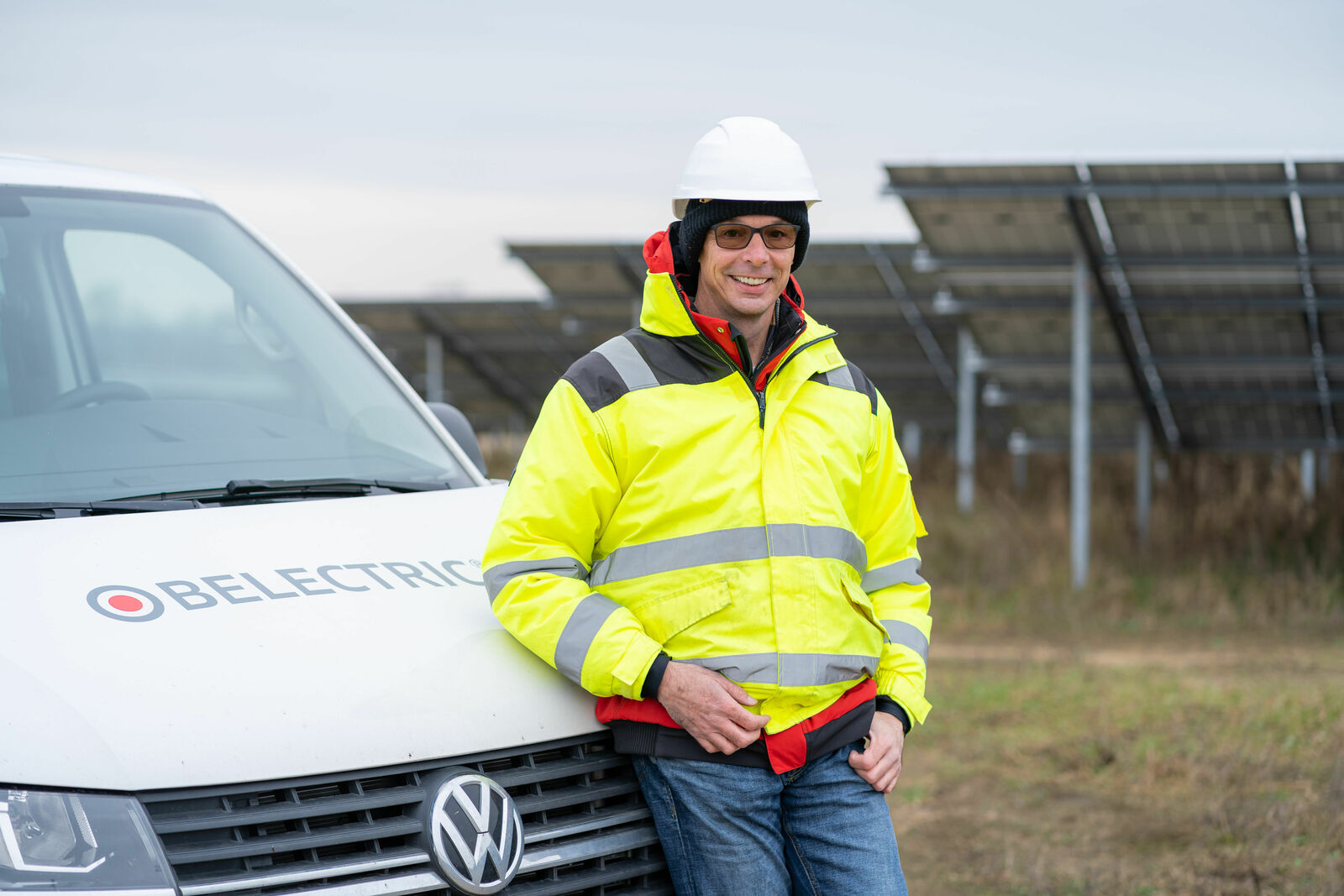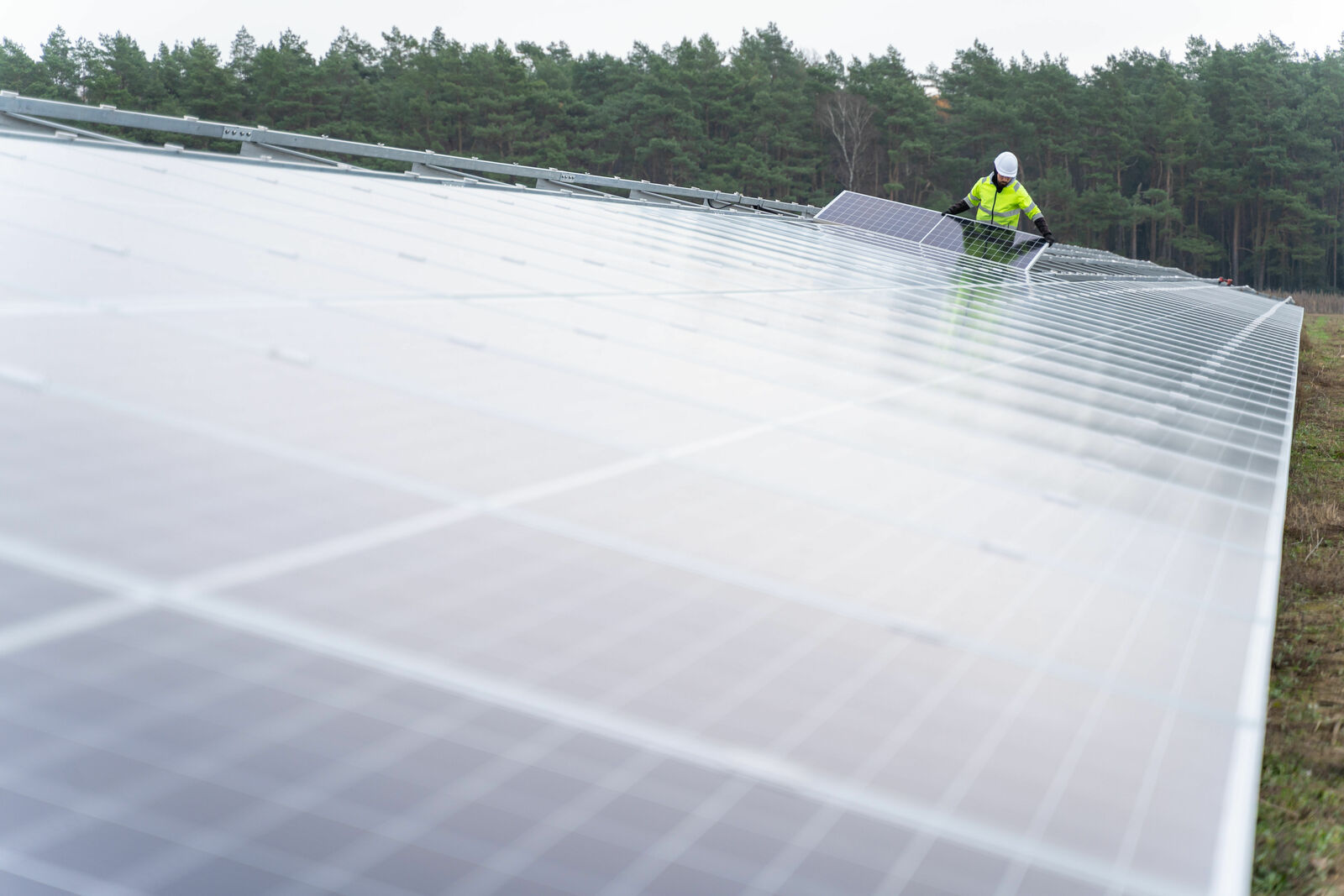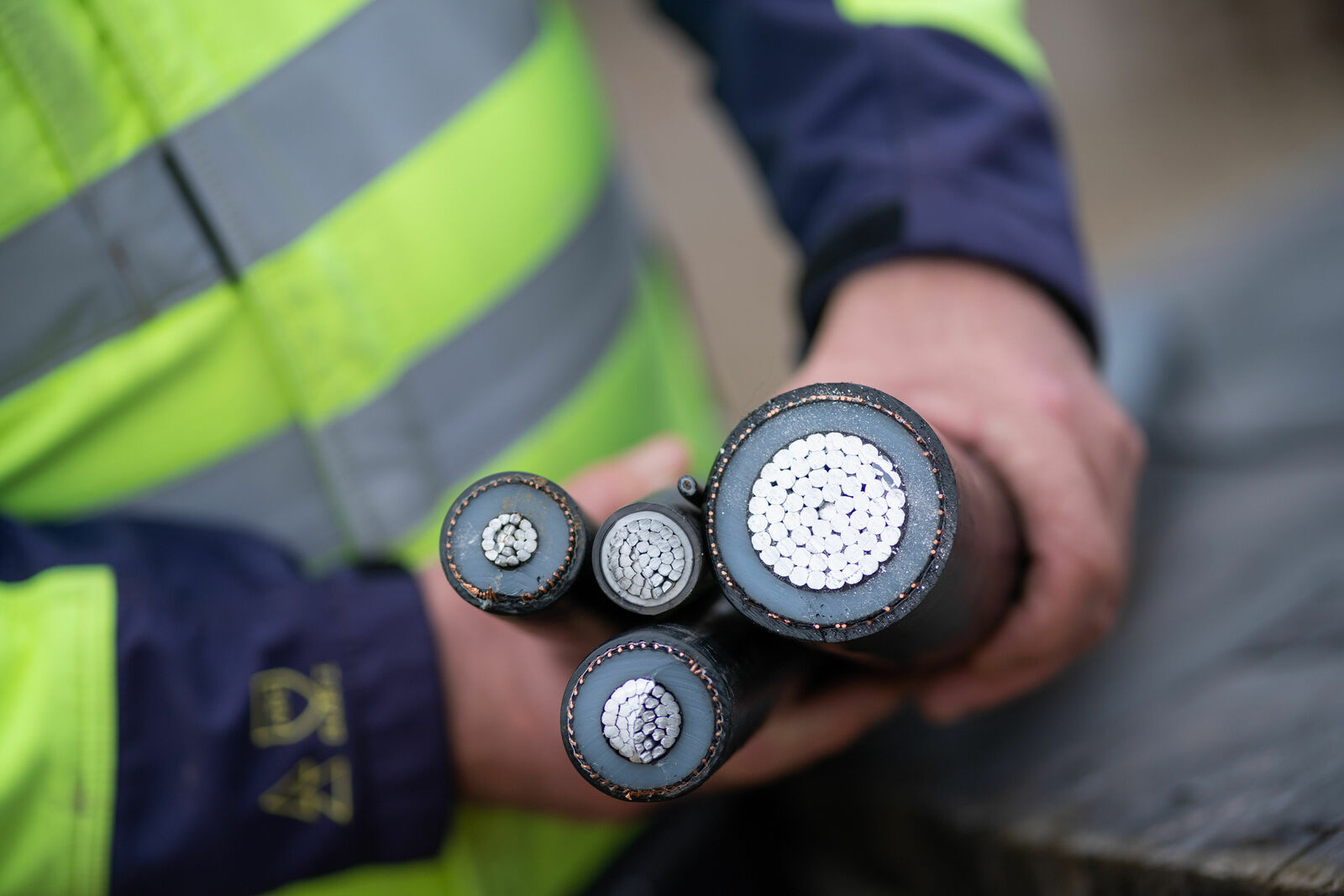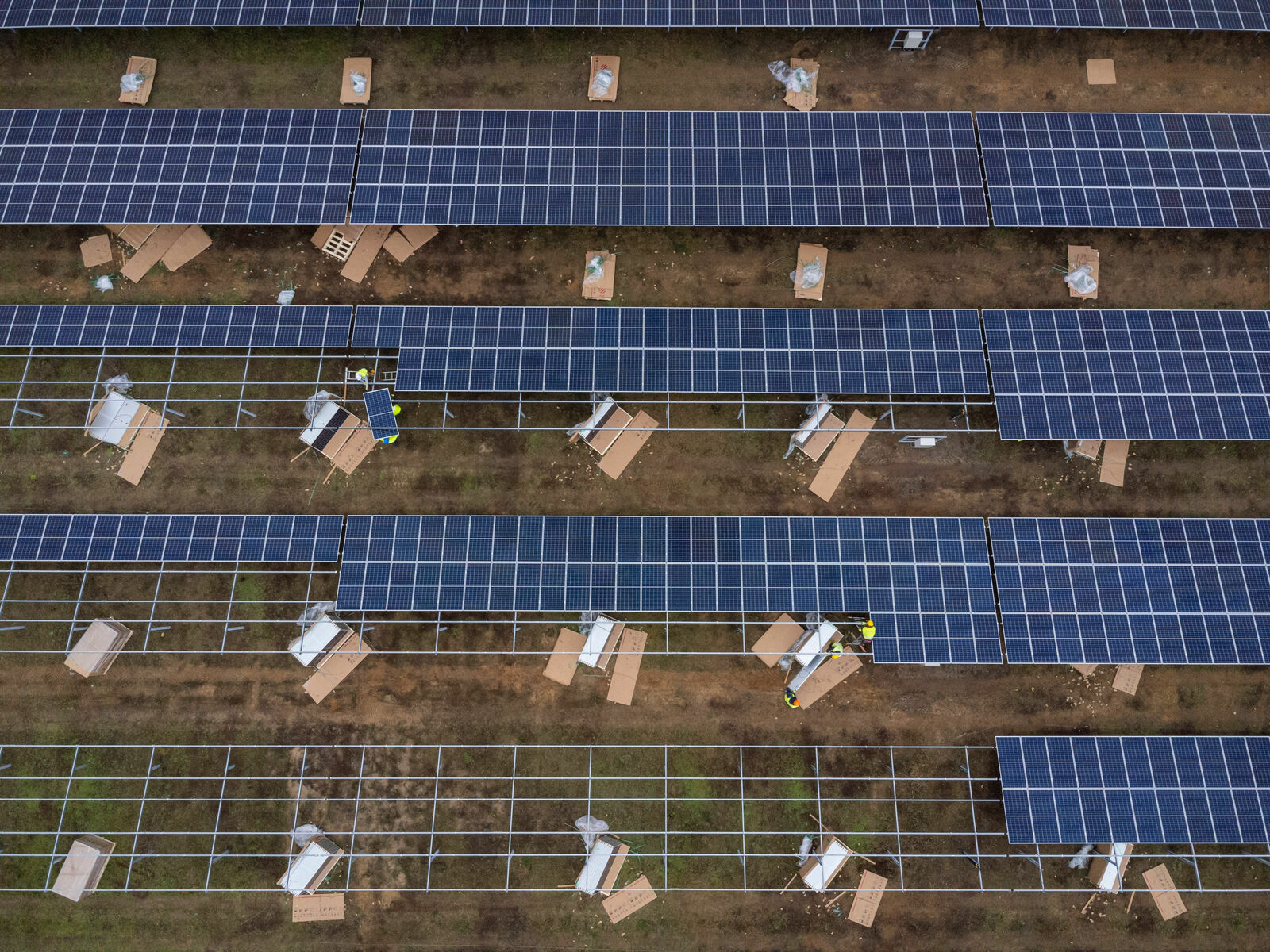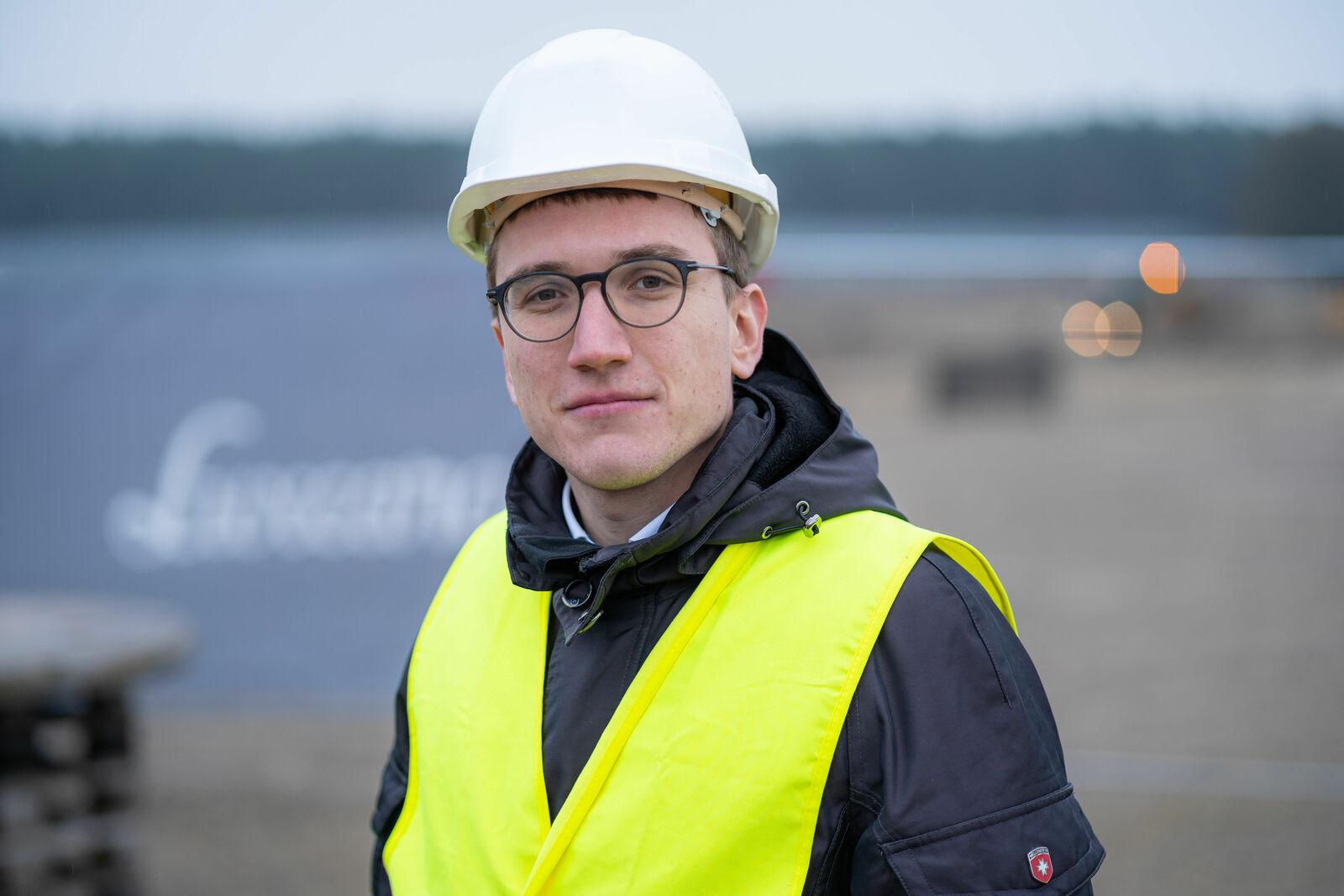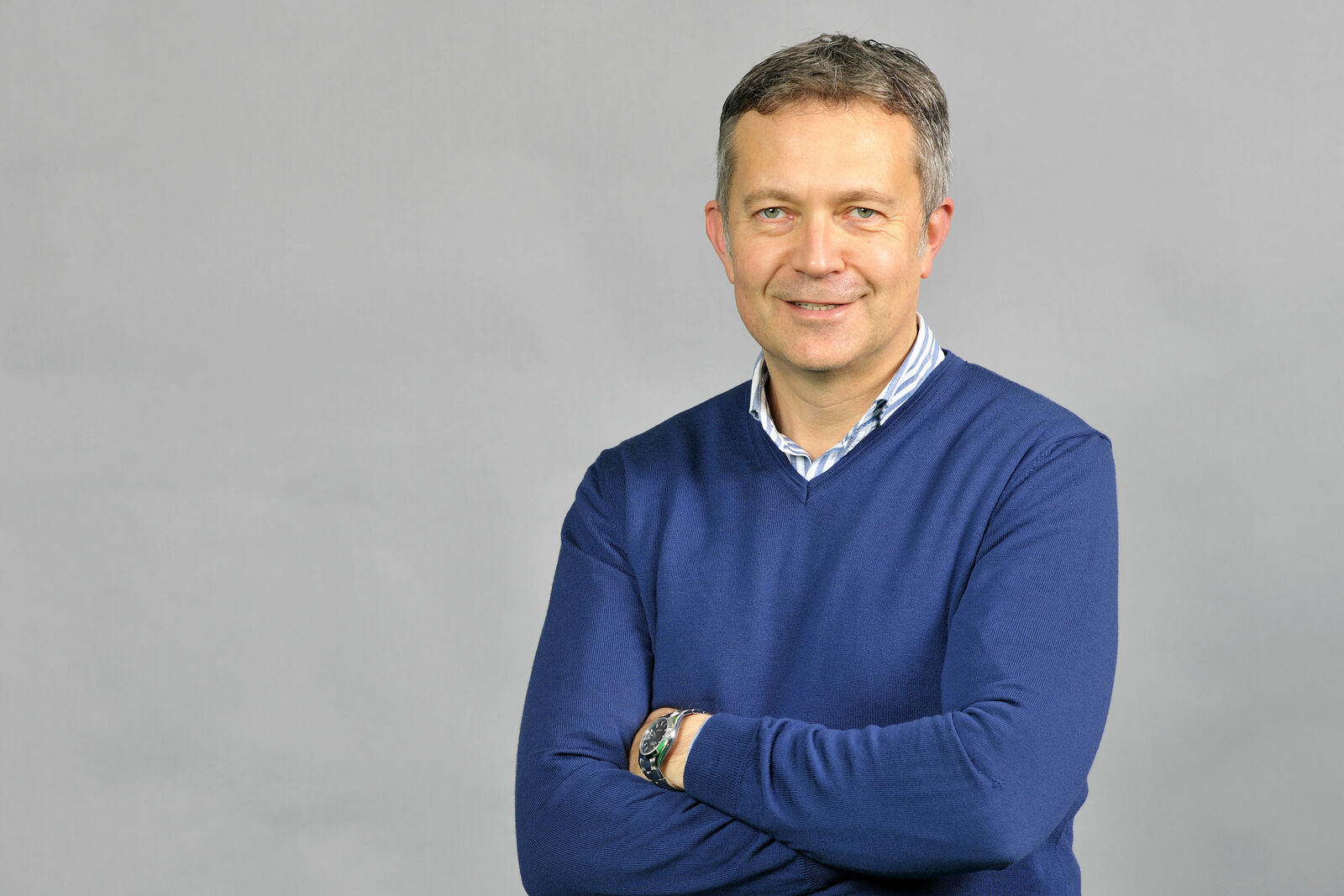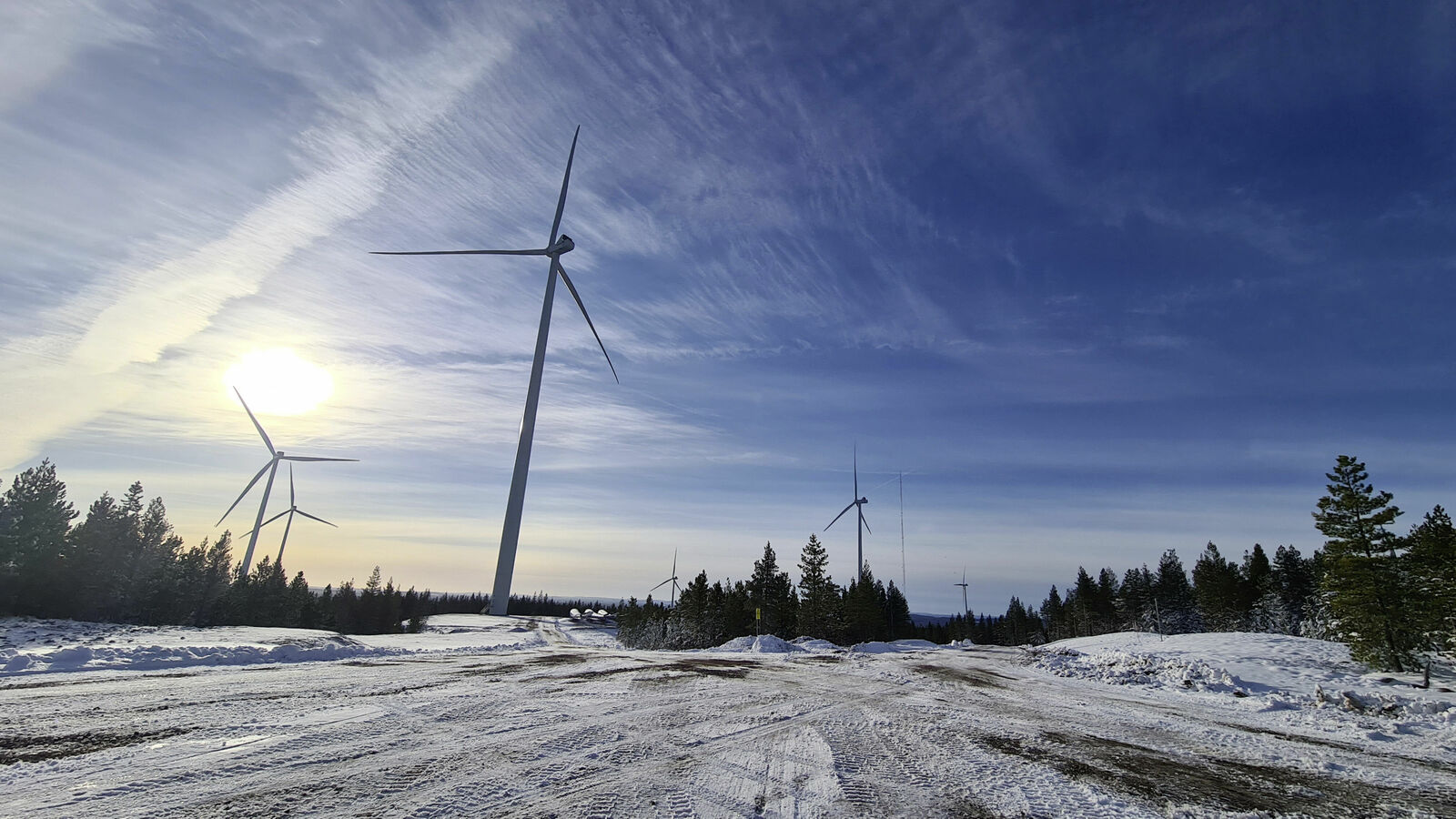Huge solar park in Mecklenburg:
Soon the sun will supply electric cars with clean energy here
In Mecklenburg-Western Pomerania, a major project in the energy revolution is set to launch in the form of the Tramm-Göthen solar park. Volkswagen is backing the initiative, to make more clean energy available for electric cars.
Project manager Heinz has been building solar parks for more than ten years. So he has a wealth of experience – and this was vital, because it wasn’t just the size that made Tramm-Göthen a challenging task, it was the pandemic as well. “Coronavirus meant that materials were in short supply on a regular basis. Once, we had to transport a consignment of solar panels from Mongolia by train because the ports were closed. We were facing this kind of uncertainty all the time,” said Heinz. “Our mantra was: We’ll get it done anyway.”
50,000
households172
megawats
420,000
solar panels
In general, the project partners value the locals being okay with the solar park – and not just the people, but flora and fauna as well. The goal: the solar park should not reduce the biodiversity, and compared with agricultural use it should even improve it.
Which is why, in addition to wildflower meadows and bodies of water for frogs, the site includes thick hedgerows and vegetation, which provide favourable living conditions for insects and birds. Endangered species such as the hare find refuge in protected areas under the solar panels. “At the end of the day, it is much better for nature than a cornfield,” said Heinz.
Good for the environment
Solar parks like Tramm-Göthen unite environmentally-friendly energy production with the protection of natural habitats. There’s no need to tarmac areas. Noise is avoided. In Belectric’s experience, solar parks can even encourage biodiversity:
- Wild herbs, insects and birds thrive without being disturbed
- Plants can blossom and seed
- Animals can rear their young
- Endangered species find refuge
- Wildflower strips boost the population of honey bees
But why a location in northern Germany? This is down to investor Luxcara. “We set up our solar parks without applying for any subsidies. The days of this only making economic sense in Southern Europe are over,” said Lorenz Hahn of Luxcara. The increasing efficiency and falling prices of solar panels mean that parks in Central Europe and Northern Europe are also economically viable – this is even more true with rising electricity prices.
This is also the case at Tramm-Göthen. An added bonus of the project is its size. “A large park is more cost-effective to plan and build than lots of little ones,” said Hahn.
In addition to the Tramm-Göthen project, a wind park belonging to energy provider wpd in Skellefteå in northern Sweden is one of the first installations. Around another 20 projects are set to follow by 2025. In total, the installations will generate an additional 7 terawatt hours of green energy. In conjunction with the net-zero climate-neutral manufacturing of its ID. models, this sees Volkswagen take another major step towards net-zero climate-neutral electric mobility throughout the entire lifecycle. Within the corporation, VW Kraftwerk GmbH is the central body responsible for implementing the green energy projects.
Automobile manufacturers play an important role in the energy revolution when it comes to technology as well. After all, the batteries of electric cars will be an important accumulator for electricity in the future, which can either be used to make journeys with the car, or be fed back into the grid when there is high demand. “This means that there will be a huge storage capacity available, which increases flexibility and stabilises electricity demand,” says Neuber. Volkswagen is set to launch this technology – bidirectional charging.
Media
